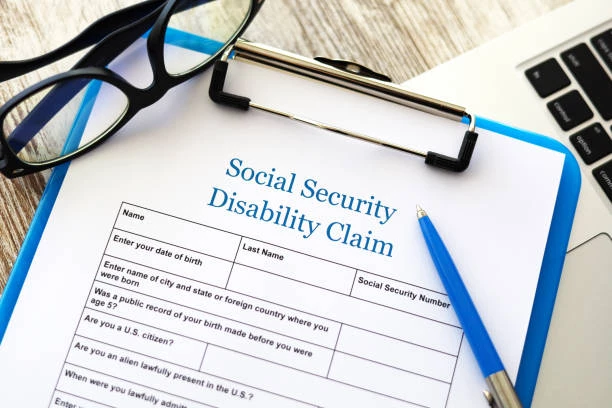COMMON REASONS SSDI MENTAL ILLNESS CLAIMS ARE DENIED
Mental illness is one of the most common reasons for disability that leads to the inability to participate in gainful employment. The Social Security Administration (SSA) provides what is commonly called the “Blue Book” detailing the types of mental disorders that can qualify an individual for Social Security Disability (SSD) benefits. The Blue Book lists nine categories of mental disorders including:
- Affective disorders
- Anxiety disorders characterized by persistent feelings of apprehension, tension or uneasiness
- Autism and related disorders
- Mental retardation
- Organic mental disorders, meaning afflictions of the brain that can lead to severe mental or behavioral problems
- Personality disorders
- Schizophrenia, paranoia and psychotic disorders
- Somatoform disorders in which symptoms of physical injury or illness exist for no apparent reason
- Substance addiction

Unfortunately, based on our experience as SSD lawyers in Philadelphia, and specifically, SSD lawyers in Delaware County, we know that any mental disability claim is usually more difficult to prove than a physical disability claim.
Despite the rather extensive list of qualifying conditions, the SSA initially approves only about 36 percent of mental health disability claims. With 64 percent of initial claims being rejected, we feel it is extremely important to understand some of the most common reasons for the denial of SSD benefit claims based on mental illness.
1) Incomplete Documentation
One of the biggest problems with mental health disability claims is that mental health professionals (psychiatrists, psychologists, therapists etc.) often keep relatively poor notes that provide little pertinent information. At other times the notes are illegible, and often mental health professionals will need to submit supplemental notes because the original notes provide insufficient information on the extent and severity of the medically documented mental illness.
2) No Record of Specialized Treatment for Mental Illness
Sometimes claimants have no record of treatment for mental illness, especially in cases of depression. They may have seen their primary care physician who gave them a prescription for an antidepressant, yet never referred them to a mental health professional for additional treatment. This means the claimant will have no substantial mental health records to submit in support of their claim for benefits.
3) Noncompliance with Treatment
Unfortunately, in some cases, the medical records will show that while a claimant has been diagnosed with a mental disorder and prescribed appropriate medication, they’ve not taken the medication. This presents a huge problem, as the SSA focuses on what a claimant can do in their everyday life despite their limitations, and limitations cannot be accurately assessed if the claimant is not taking the prescribed medication.
Sometimes noncompliance is due to the claimant’s inability to afford the prescribed medication, but the SSA usually doesn’t consider affordability but focuses instead on whether or not the claimant has adhered to the prescribed treatment plan.
4) Lack of Duration
Some mental disability claims are rejected on the basis of duration. This means that an examiner or an administrative law judge (ALJ) has concluded that the applicant’s disability has not lasted the required length of time. This is especially true of those suffering from mental conditions like bipolar disorder that tend to “cycle” by improving and then declining. Having a disorder that cycles in this way can make it very difficult to secure the benefits you are entitled to.
5) Employability
When you file for benefits based on a mental disability, the SSA evaluates whether you are able to perform any job, not just your former job. Even if your mental health records clearly indicate you’re incapable of returning to your previous job, the SSA may determine that you still have the mental capacity to perform other work and, accordingly, deny your claim for benefits.
This can be an issue, especially for younger workers, as the SSA often concludes that they are still capable of undergoing training enabling them to perform other types of work.

Dedicated Social Security Disability Lawyers in Philadelphia and Delaware County
Due to the issues we’ve described, many people intending to file a mental disability claim with the SSA seek the assistance of experienced and knowledgeable attorneys from a reputable law firm. To that end, we invite you to contact the law offices of Leventhal, Sutton & Gornstein to secure the assistance of a compassionate Social Security disability attorney who will work directly with you to help file a successful claim and receive the benefits you deserve.
We have been serving clients in the Philadelphia area for many years, and we specialize in assisting Social Security Disability claimants through their hearing before an ALJ – and beyond when necessary. We will make sure your application and appeals are filed in a timely manner, and we will not only help you obtain all your medical evidence but also prepare custom medical source statements specific to your medical condition.
To learn more about the invaluable assistance that an experienced disability attorney from the firm of Leventhal, Sutton & Gornstein can provide, we urge you to contact us today at 215-357-3300 or toll free at 800-889-6101 to schedule your free consultation.

